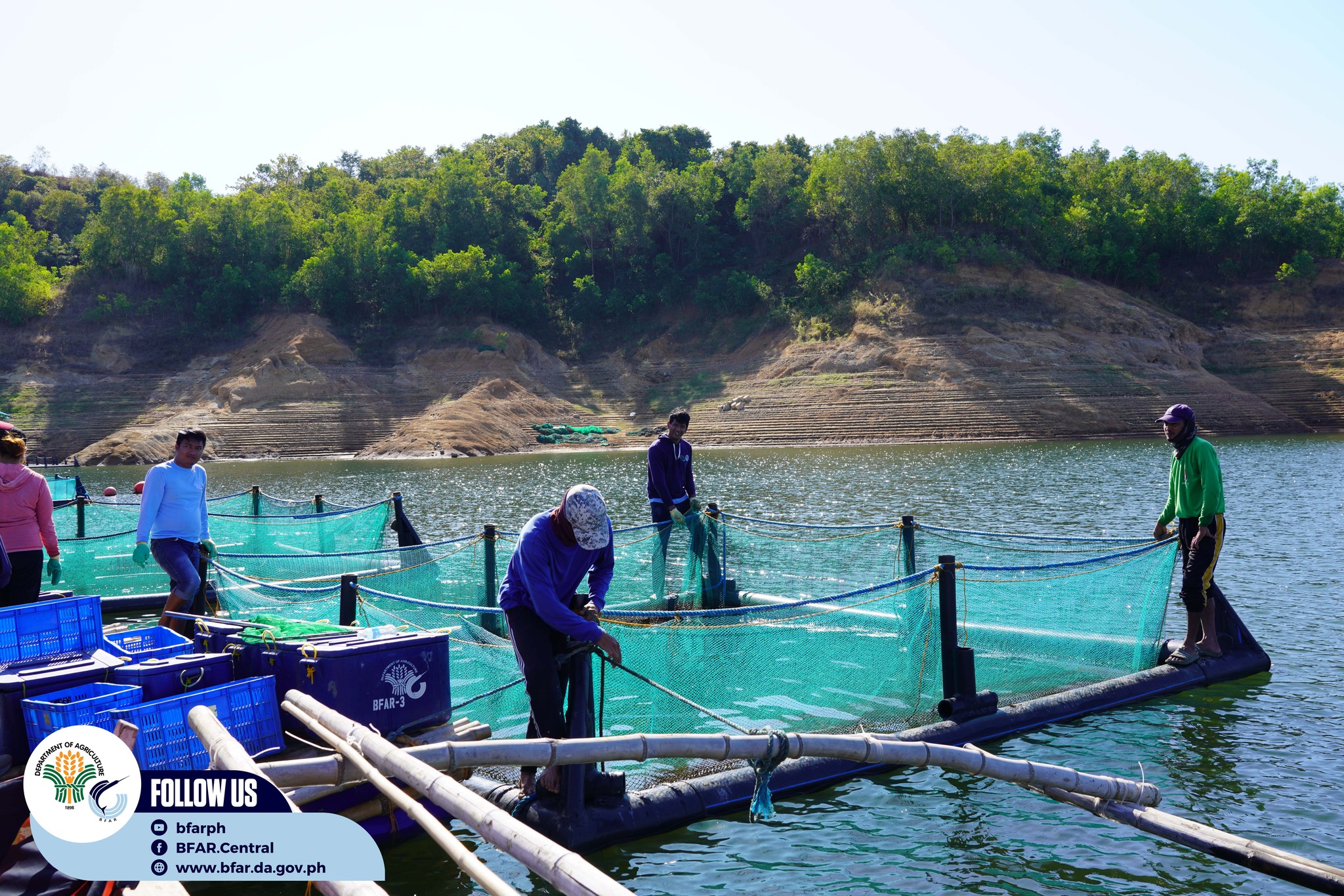Gov’t unveils framework to protect, enhance small-scale fisheries

Pantabangan Aquaculture Park | PHOTO: Official Facebook Page of the Bureau of Fisheries and Aquatic Resources Central Office
The government unveiled a framework for protecting and enhancing the role of small-scale fisheries in food security, a first of its kind in Asia.
Called the National Plan of Action for Small-Scale Fisheries (NPOA-SSF), it adopts a human rights-based approach to implement the guidelines to boost small-scale fisheries’ contribution to food security, poverty reduction and sustainable development.
It calls for adopting a participatory, multi-partner mechanism to identify challenges faced by the small-scale fisheries sector and design strategic interventions to address those.
The initiative’s priority areas are responsible governance of tenure; sustainable resource management; social development, employment and decent work; value-chains, postharvest and trade; gender equality and disaster risk and climate change.
READ: BFAR earmarks P1.06B for seaweed industry’s development
The FAO said these guidelines are an integral part of its roadmap for transforming aquatic food systems, which works towards effective management of all fisheries to deliver healthy stocks and secure equitable livelihoods for all.
It also supports the United Nations 2030 Agenda for Sustainable Development and the adopted Pact for the Future, aimed at accelerating the achievement of its sustainable development goals.
“Our next step entails that we make sure that this does not remain a plan but goes into implementation. The challenges facing small-scale fisheries are varied and complex,” FAO country representative Lionel Henri Valentin Dabbadie said in a statement on Monday.
“But with the right partnerships, the right investments, the commitment of all stakeholders, and the framework provided by the NPOA-SSF, I am confident we have everything at our disposal to overcome these challenges,” Dabbadie said.
The FAO said it developed the guidelines in consultation with member states and stakeholders across the globe.
“It has also been tremendously inspiring to witness throughout the years the level of participation from the communities. The way the community members demonstrate leadership in proactively engaging with the project is something we must continue to be in awe of,” he added.
According to the FAO, small-scale fisheries are composed of at least 40 percent of the global catch from capture fisheries. It supports 110 million people directly and benefits 500 million people globally, including their households.
The UN’s specialized agency said small-scale fisheries contribute significantly to the Philippines’ nutrition, income, and employment of the rural poor.
Citing data from BFAR, it noted that small-scale fisheries account for 26.6 percent of overall fisheries production and employ about 2.19 million people.